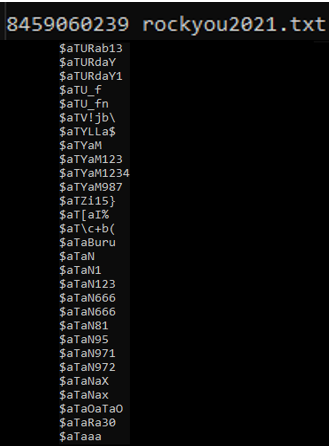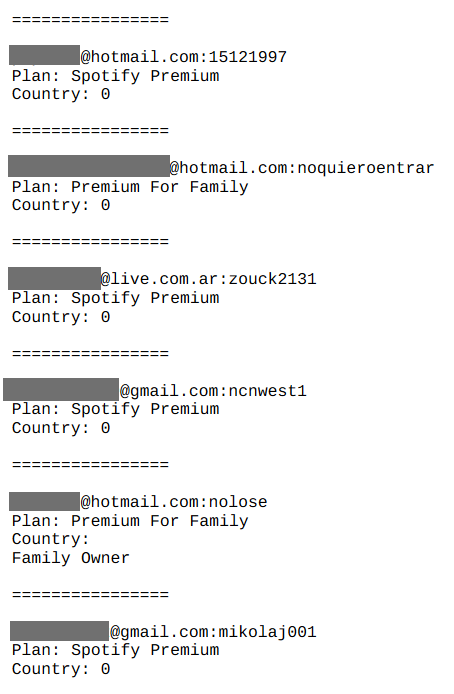How secure are your online accounts? A staggering number of 19 billion compromised passwords have been published online, leaving millions vulnerable to cybercriminals. This alarming revelation underscores the urgent need for immediate action to safeguard personal and professional data.
The scale of this breach is unprecedented, with security experts confirming that these credentials are readily available for malicious use. The situation demands attention from both individuals and organizations alike. In a world where digital presence is inevitable, the question remains: Are you doing enough to protect yourself?
| Category | Details |
|---|---|
| Name of Database | Mega Password Leak Database |
| Total Compromised Passwords | 19,030,305,929 |
| Timeframe | April 2024 onwards |
| Primary Source of Breach | Over 200 data breaches |
| Percentage of Unique Passwords | 6% |
| Common Weak Passwords | password, admin, 123456 |
| Reference Website | Cybernews |
The newly discovered mega-database containing 19 billion compromised passwords has been uncovered online, sparking significant concerns among cybersecurity professionals. This massive breach includes credentials obtained from over 200 leaks since April 2024. Despite repeated warnings, weak passwords such as “password,” “admin,” and “123456” continue to dominate user habits, making it easier for hackers to exploit vulnerabilities.
Research conducted by Cybernews highlights that only 6% of the leaked passwords were identified as unique. This statistic paints a grim picture of password hygiene practices globally. Users often reuse the same passwords across multiple platforms, increasing their risk of exposure if one account is compromised. Experts warn that the leaked information could be leveraged in various ways, including identity theft and unauthorized access to sensitive accounts.
Experts emphasize that the crisis extends beyond individual users. Organizations face an equally daunting challenge in protecting customer data and maintaining trust. Many companies fail to implement robust security measures, leaving them susceptible to breaches. As part of the solution, businesses must adopt multi-factor authentication (MFA) and educate employees about best practices for creating strong passwords.
For individuals, taking proactive steps is crucial. Using complex combinations of letters, numbers, and symbols can significantly enhance password strength. Additionally, utilizing password managers helps generate and store unique credentials for each account without burdening memory. These tools also enable automatic updates when necessary, ensuring continuous protection against evolving threats.
Despite these recommendations, many remain complacent about cybersecurity risks. Studies indicate that human error contributes significantly to successful attacks. Whether through phishing schemes or inadequate password management, attackers exploit weaknesses in behavior rather than technology alone. Therefore, fostering awareness becomes essential in combating this growing menace.
Cybersecurity researchers caution that the leaked passwords represent more than just numerical figures; they symbolize potential harm to countless lives. The information contained within these databases could facilitate account takeovers, financial fraud, and even reputational damage. With such dire consequences at stake, ignoring this issue equates to inviting disaster into one's digital life.
Furthermore, the interconnected nature of modern systems exacerbates the problem. Once a hacker gains entry into one system, lateral movement allows them to infiltrate others connected within networks. This domino effect increases the likelihood of widespread devastation should adequate safeguards not exist. Consequently, implementing comprehensive strategies addressing all aspects of cybersecurity becomes imperative.
While no method guarantees absolute immunity from cyberattacks, adopting preventive measures dramatically reduces vulnerability. Regularly updating software, enabling firewalls, and monitoring suspicious activities serve as foundational components of effective defense mechanisms. Moreover, staying informed about emerging trends in cybercrime empowers users to adapt swiftly to new challenges.
In conclusion, the publication of 19 billion compromised passwords online constitutes a watershed moment in cybersecurity history. It forces everyone—individuals and enterprises alike—to reassess current practices and commit to enhancing security protocols. By prioritizing education, leveraging advanced technologies, and promoting accountability, society can collectively mitigate the impact of future breaches. Remember, prevention always outweighs remediation when safeguarding what matters most in today's digital age.



